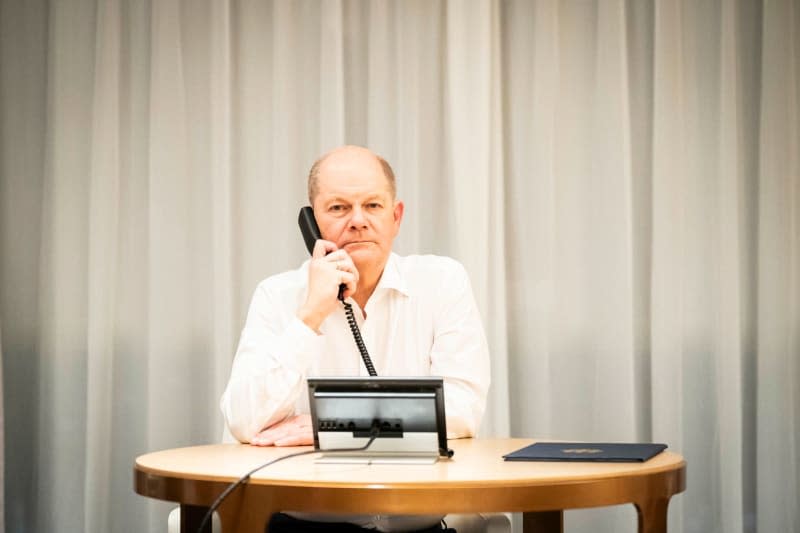German leaders urge restraint following Iranian attack on Israel

- Oops!Something went wrong.Please try again later.
Berlin – German leaders called for de-escalation and urged restraint on Sunday following Iran's overnight attack on Israel.
Chancellor Olaf Scholz warned while on a visit to China against any further escalation. "Things must not continue in this way," Scholz said in Chongqing. "We will do everything we can to avoid further escalation."
Scholz termed the Iranian attack "absolutely unjustifiable" and added that it was in no way acceptable, understandable or tolerable. "All we can do is warn everyone, especially Iran, against continuing like this," said Scholz.
He reiterated Germany's solidarity with Israel, which had every right to defend itself since the terrorist attack by Hamas on October 7 last year.
Speaking in Berlin after chairing a crisis meeting, Foreign Minister Annalena Baerbock called on all the region's actors to act prudently. "The spiral of escalation must be broken. We have to find an end to the violence together," she said.
Iran had taken the region "to the edge of a precipice," she said, condemning the attack in the sharpest terms and assuring Israel of Germany's full solidarity. Iran should avoid further attacks mounted by its allies, she added.
Germany has urged its citizens to leave Iran.
Baerbock pointed to the "millions of women, men and children in Israel, in Iran and in the entire region, who could not sleep last night for fear."
President Frank-Walter Steinmeier phoned his Israeli counterpart Isaac Herzog to assure him of German solidarity.
"People in Israel had to seek shelter for hours last night against Iranian drones and missiles. We condemn this attack in the sharpest terms," Steinmeier, a former German foreign minister, told Herzog, according to a statement from his office.
He also expressed the hope that escalation could be avoided.
The leaders were speaking following the first direct attack on Israeli territory from Iran. An Israeli military spokesman said that 99% of some 300 drones, cruise missiles and ballistic missiles had been intercepted by Israel and its allies, with minimal damage caused.
Iran's "Operation Truthful Promise" was mounted in revenge for an airstrike on its embassy grounds in Damascus on April 1 in which two generals and others were killed. Israel is believed to have carried out the attack and has not denied responsibility.
Whether Israel will respond to the Iranian attack is not yet clear.

